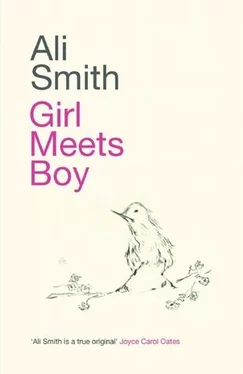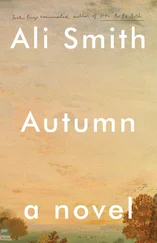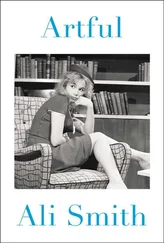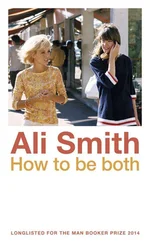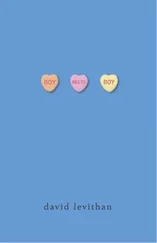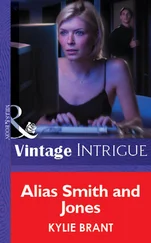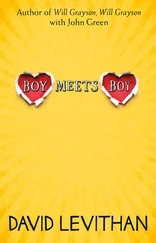Τάδε νυν ἕταιραις
ταϊς εμαισι τέρπνα κάλως άείσω.
for Lucy Cuthbertson
for Sarah Wood
Far away, in some other category, far
away from the snobbery and glitter in
which our souls and bodies have been
entangled, is forged the instrument
of the new dawn.
E. M. Forster
It is the mark of a narrow world that
it mistrusts the undefined.
Joseph Roth
I am thinking about the difference
between history and myth. Or between
expression and vision. The need for
narrative and the simultaneous need
to escape the prison-house of the
story — to misquote.
Kathy Acker
Gender ought not to be construed as
a stable identity … rather, gender is an
identity tenuously constituted in time.
Judith Butler
Practise only impossibilities.
John Lyly
Let me tell you about when I was a girl, our grandfather says.
It is Saturday evening; we always stay at their house on Saturdays. The couch and the chairs are shoved back against the walls. The teak coffee table from the middle of the room is up under the window. The floor has been cleared for the backward and forward somersaults, the juggling with oranges and eggs, the how-to-do-a-cart-wheel, how-to-stand-on-your-head, how-to-walk-on-your-hands lessons. Our grandfather holds us upside-down by the legs until we get our balance. Our grandfather worked in a circus before he met and married our grandmother. He once did headstands on top of a whole troupe of headstanders. He once walked a tightrope across the Thames. The Thames is a river in London, which is five hundred and twenty-seven miles from here, according to the mileage chart in the RAC book in among our father’s books at home. Oh, across the Thames, was it? our grandmother says. Not across the falls at Niagara? Ah, Niagara, our grandfather says. Now that was a whole other kittle of fish.
It is after gymnastics and it is before Blind Date. Sometimes after gymnastics it is The Generation Game instead. Back in history The Generation Game was our mother’s favourite programme, way before we were born, when she was as small as us. But our mother isn’t here any more, and anyway we prefer Blind Date, where every week without fail a boy chooses a girl from three girls and a girl chooses a boy from three boys, with a screen and Cilla Black in between them each time. Then the chosen boys and girls from last week’s programme come back and talk about their blind date, which has usually been awful, and there is always excitement about whether there’ll be a wedding, which is what it’s called before people get divorced, and to which Cilla Black will get to wear a hat.
But which is Cilla Black, then, boy or girl? She doesn’t seem to be either. She can look at the boys if she wants; she can go round the screen and look at the girls. She can go between the two sides of things like a magician, or a joke. The audience always laughs with delight when she does it.
You’re being ridiculous, Anthea, Midge says shrugging her eyes at me.
Cilla Black is from the sixties, our grandmother says as if that explains everything.
It is Saturday tea-time, after supper and before our bath. It is always exciting to sit in the chairs in the places they usually aren’t. Midge and I, one on each knee, are on our grandfather’s lap and all three of us are wedged into the pushed-back armchair waiting for our grandmother to settle. She drags her own armchair closer to the electric fire. She puts her whole weight behind the coffee table and shoves it over so she can watch the football results. You don’t need the sound up for that. Then she neatens the magazines on the under-rack of the table and then she sits down. Steam rises off teacups. We’ve got the taste of buttered toast in our mouths. At least, I assume we all have it, since we’ve all been eating the same toast, well, different bits of the same toast. Then I start to worry. Because what if we all taste things differently? What if each bit of toast tastes completely different? After all, the two bits I’ve eaten definitely tasted a bit different even from each other. I look round the room, from head to head of each of us. Then I taste the taste in my own mouth again.
So did I never tell you about the time they put me in jail for a week when I was a girl? our grandfather says.
What for? I say.
For saying you were a girl when you weren’t one, Midge says.
For writing words, our grandfather says.
What words? I say.
NO VOTES NO GOLF, our grandfather says. They put us in jail because we wrote it into the golf green with acid, me and my friend. What’s a young girl like you wanting acid for? the chemist asked me when I went to get it.
Grandad, stop it, Midge says.
What’s a girl like you wanting with fifteen bottles of it? he said. I told him the truth, more fool me. I want to write words on the golf course with it, I told him and he sold me it, right enough, but then he went and told Harry Cathcart at the police station exactly who’d been round buying a job lot of acid. We were proud to go to jail, though. I was proud when they came to get me. I said to them all at the police station, I’m doing this because my mother can’t write her name with words, never mind vote. Your great-grandmother wrote her name with Xs. X X X. Mary Isobel Gunn. And when we went on the Mud March, our grandfather says. Boy oh boy. It was called the Mud March because — because why?
Because of some mud, I say.
Because of the mud we got all up the hems of our skirts, our grandfather says.
Grandad, Midge says. Don’t.
You should’ve heard the mix of accents coming out of us all, it was like a huge flock of all the different birds, all in the sky, all singing at once. Blackbirds and chaffinches and seagulls and thrushes and starlings and swifts and peewits, imagine. From all over the country we came, from Manchester, Birmingham, Liverpool, Huddersfield, Leeds, all the girls that worked in clothing, because that’s what most of us did, textiles I mean, and from Glasgow, from Fife, even from right up here we went. Soon they were so afraid of us marching that they made brand new laws against us. They said we could only march in groups of no more than twelve of us. And each group of twelve girls had to be fifty yards away from any other group of twelve. And what do you think they threw at us for marching, what do you think they threw at us when we spoke in front of the great hordes of listening people?
Eggs and oranges, I say. Mud.
Tomatoes and fishheads, Midge says.
And what did we throw at the Treasury, at the Home Office, at the Houses of Parliament? he says.
Fishheads, I say.
I am finding the idea of throwing fishheads at official historic buildings very funny. Our grandfather tightens his hold round me.
No, he says. Stones, to break the windows.
Not very ladylike, Midge says from the other side of his head.
Actually, Miss Midge —, our grandfather says.
My name’s not Midge, Midge says.
Actually, as it happens, we were very ladylike indeed. We threw the stones in little linen bags that we’d made ourselves with our own hands especially to put the stones in. That’s how ladylike we were. But never mind that. Never mind that. Listen to this. Are you listening? Are you ready?
Here we go, our grandmother says.
Did I never tell you about the time when I was a really important, couldn’t-be-done-without part of the smuggling-out-of-the-country of Burning Lily herself, the famous Building-Burning-Girl of the North East?
Читать дальше
